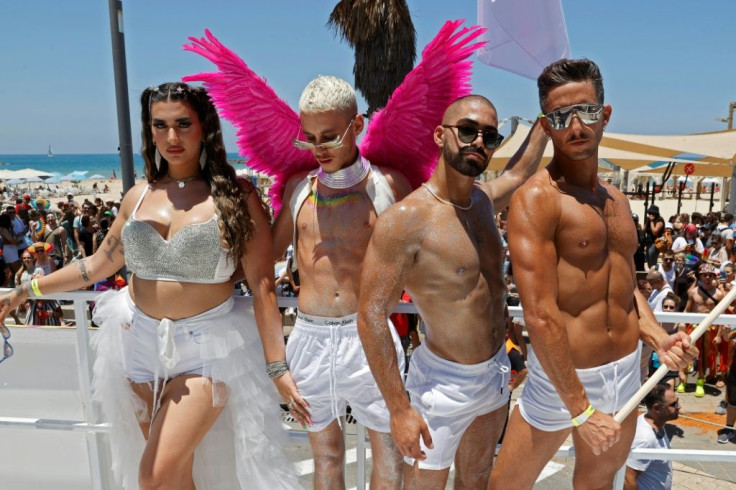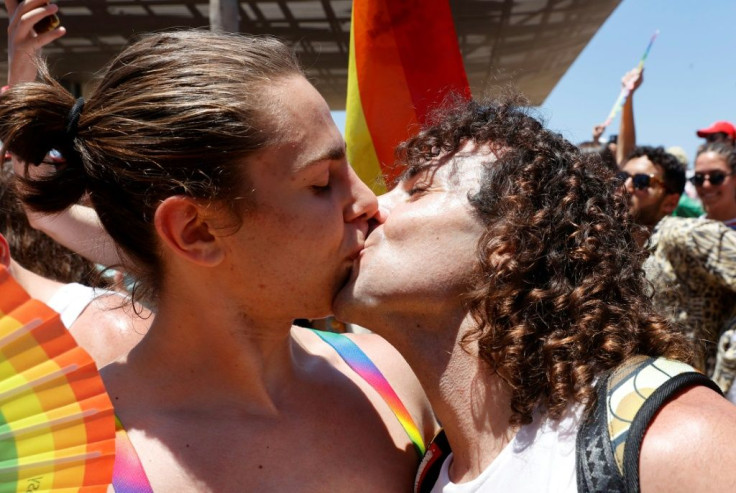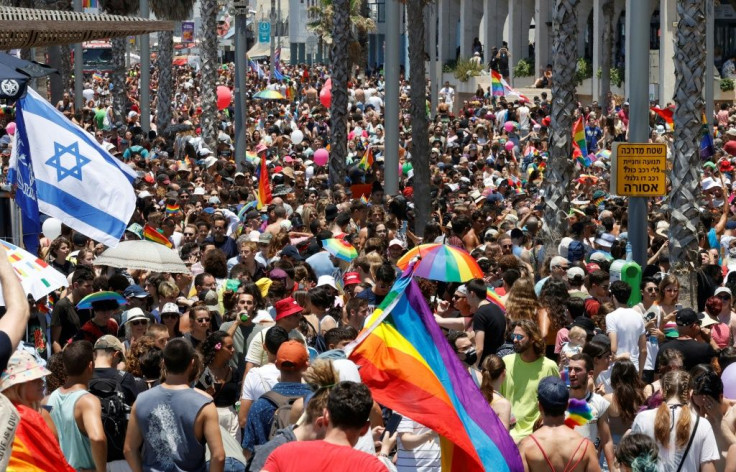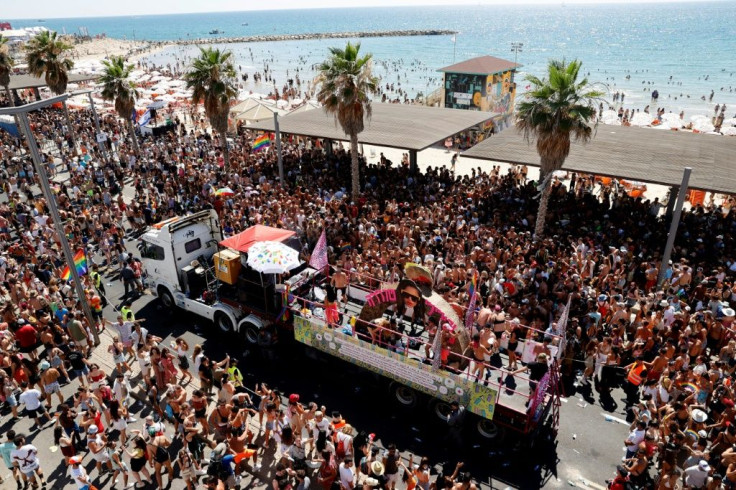Tel Aviv Defies Virus To Party With Pride
Thousands partied in the streets of Tel Aviv on Friday at the city's first Pride event since the Covid pandemic, with many ignoring Israeli government pleas to wear masks amid a surge in infections.
Extravagantly costumed revellers danced on colourful floats under rainbow banners, in a parade stretching from the city centre along the beach towards the ancient port of Jaffa, a mixed Arab-Jewish quarter.
"We have come to celebrate our love and to continue to fight for our rights," said Shalev, giving only his first name, as carnival floats drove slowly through the packed crowds, with dancers waving pink flags along to thumping trance music.

Organisers called it the "largest parade of its kind held worldwide since the outbreak of Covid-19", with local government estimating at least 100,000 people took part.
Tel Aviv Mayor Ron Huldai hailed the event's return, saying in a statement that Pride events were "a long-standing tradition, centred on a message of equality, acceptance, and human and civil rights."
The parade began at midday (0900 GMT), the same time a health ministry requirement for masks to be worn in most indoor spaces came back into effect just 10 days after it was lifted.
Despite the ministry's call for masks to be worn at large outdoor gatherings, an AFP reporter saw few among the thousands of party-goers.

"I'm very happy," said Mai Truman, a 28-year-old student who came from the nearby town of Rehovot to support his friends in Israel's LGBTQ community.
"It feels like there's no corona, it feels like we finished," said Truman, who was not wearing a mask.
The last Tel Aviv Pride in 2019 drew a quarter of a million party-goers.

With Israel still largely closed to tourists due to the pandemic, this year's march was smaller -- but the celebrations were just as enthusiastic.
Nuphar Siman-Tov, 22, said she came to Tel Aviv Pride "to support friends and family".
She wore a mask and, like more than half of Israelis, has had two vaccinations.
"I'm trying to do the maximum I can to stay safe," she said.

Another person wearing a face mask was Lin Xiaoxi, a 33-year-old foreign student at Tel Aviv University.
"It is quite different from China," Lin said.
One man shot a water gun from his terrace to provide cooling relief for the demonstrators in the Mediterranean sunshine below.
Some revellers wore bathing suits while others cooled themselves with rainbow-striped hand fans.
Ofir, 20, stood under the water gun stream with friends.
She asked AFP not to use her second name, as she is a soldier and a lesbian.
"Pride is not just a party," she said, a rainbow painted on her eyelids. "It's a protest."
She said she wanted Israel to legalise same-sex marriage and ease rules for same-sex couples to raise children.
"We are part of the people," she added.
Israel has the most open attitude to homosexuality in the Middle East, with a large and influential gay community, particularly in Tel Aviv.
But the country also has a large and highly conservative ultra-Orthodox Jewish community, and a new governing coalition headed by Naftali Bennett includes parties with socially conservative platforms.
Far-right lawmaker Bezalel Smotrich of the Religious Zionism party called Friday's march "a great blasphemy".
The Islamic conservative Raam party released a campaign video earlier this year calling LGBTQ people "deviants".
A 2015 Pride event in Jerusalem ended in tragedy when an ultra-Orthodox Jewish man stabbed a 16-year-old girl to death and wounded several others.
© Copyright AFP {{Year}}. All rights reserved.





















